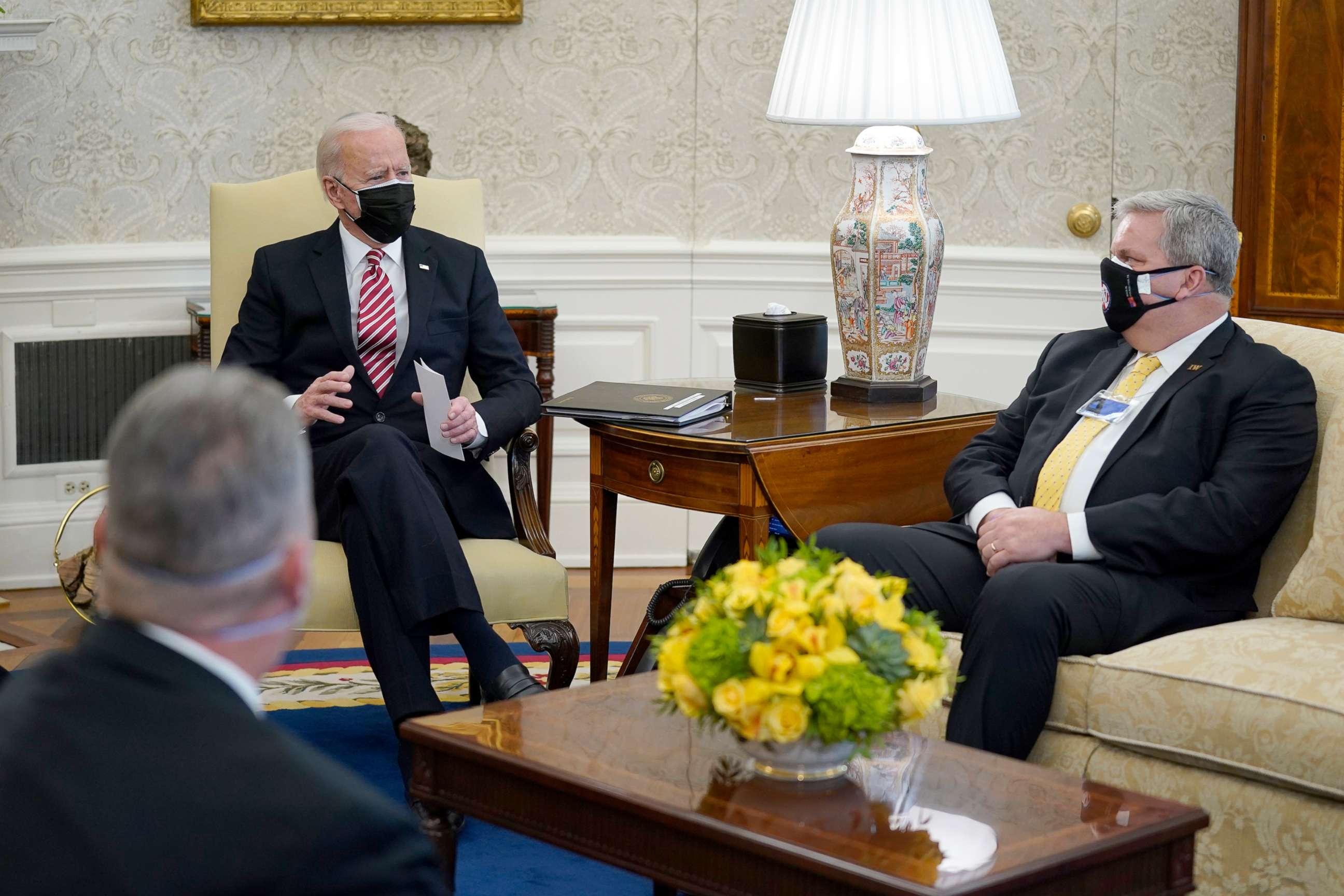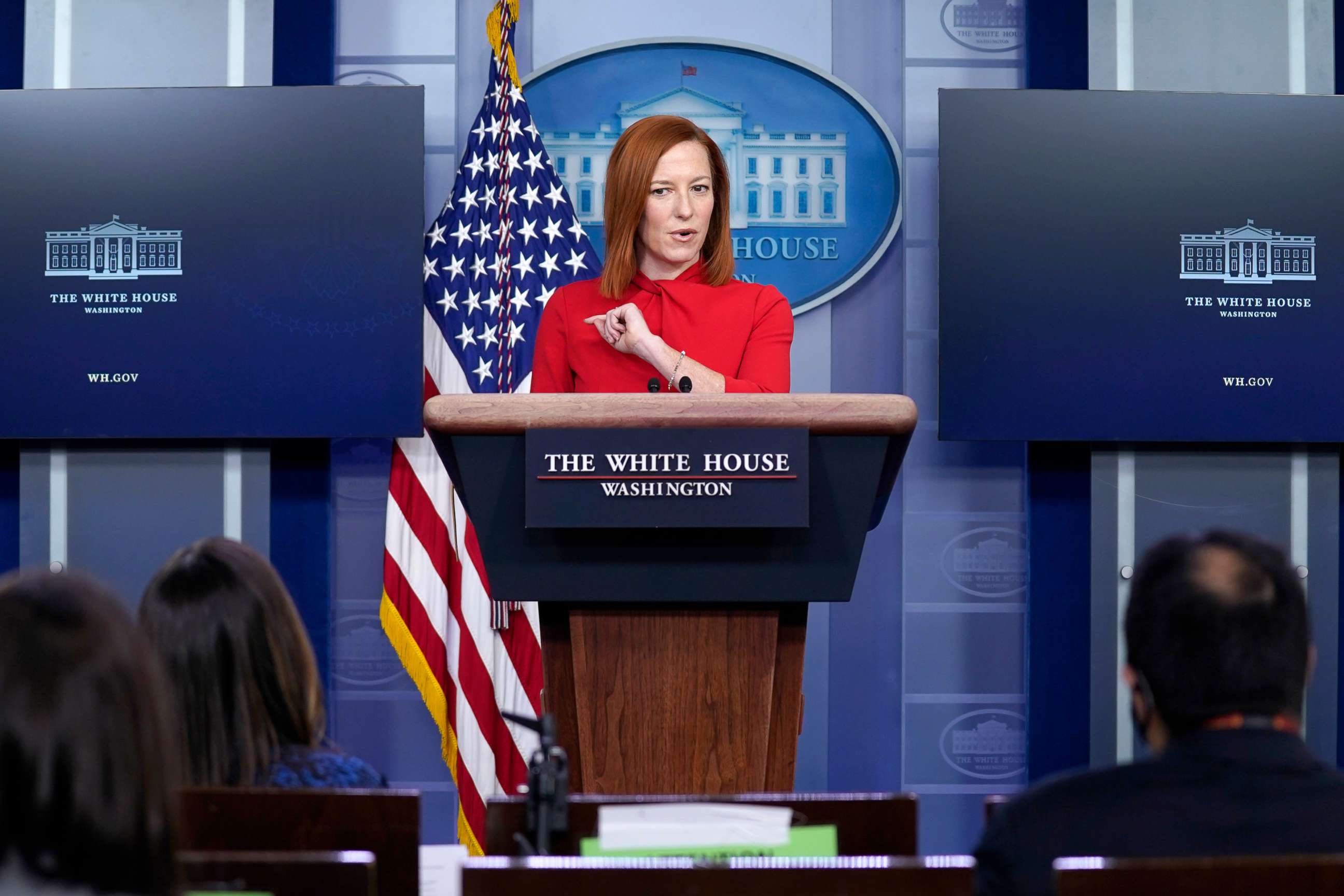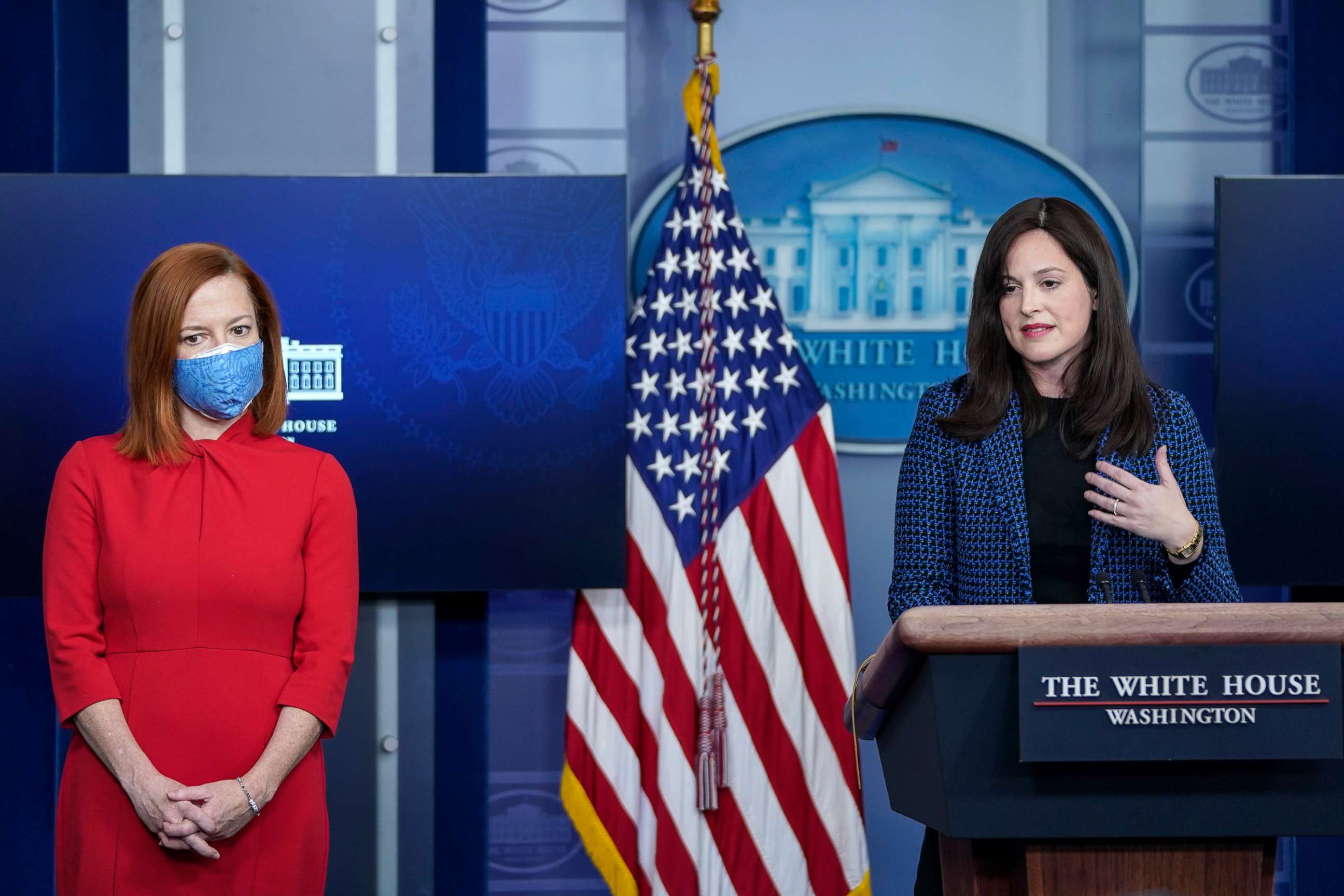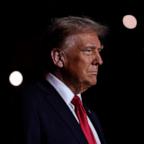Biden meets with labor leaders, pushes COVID-19 relief plan
Biden and Harris met with labor leaders in the Oval Office Wednesday afternoon, where Biden discussed his commitment to the middle class.

"The middle class built this country and labor built the middle class," Biden said. "We have an amazing opportunity to create progress and good jobs, to rebuild infrastructure in a way that has to be done."
He also took two questions from reporters, one of them about what he learned from taking his pitch for COVID-19 relief on the road. He said he learned that people like everything in the plan, reiterating, "not a joke, everything that’s in the plan."
"And it's not about the money. It's about, in order to do everything from open schools as we should, to make sure that we're generating income for people who are in real trouble. It's about how much it costs," Biden said.
"The federal government has to chip in, make sure we get this done."
On Thursday, the administration will continue its push when Harris hosts a roundtable discussion with "women leaders in Congress and women leaders of advocacy organizations" about the importance of COVID-19 relief for women. Biden will take his second presidential trip, this one to Kalamazoo, Michigan, to visit a Pfizer vaccine manufacturing plant and deliver remarks.
-ABC News' Sarah Kolinovsky and Mary Bruce






